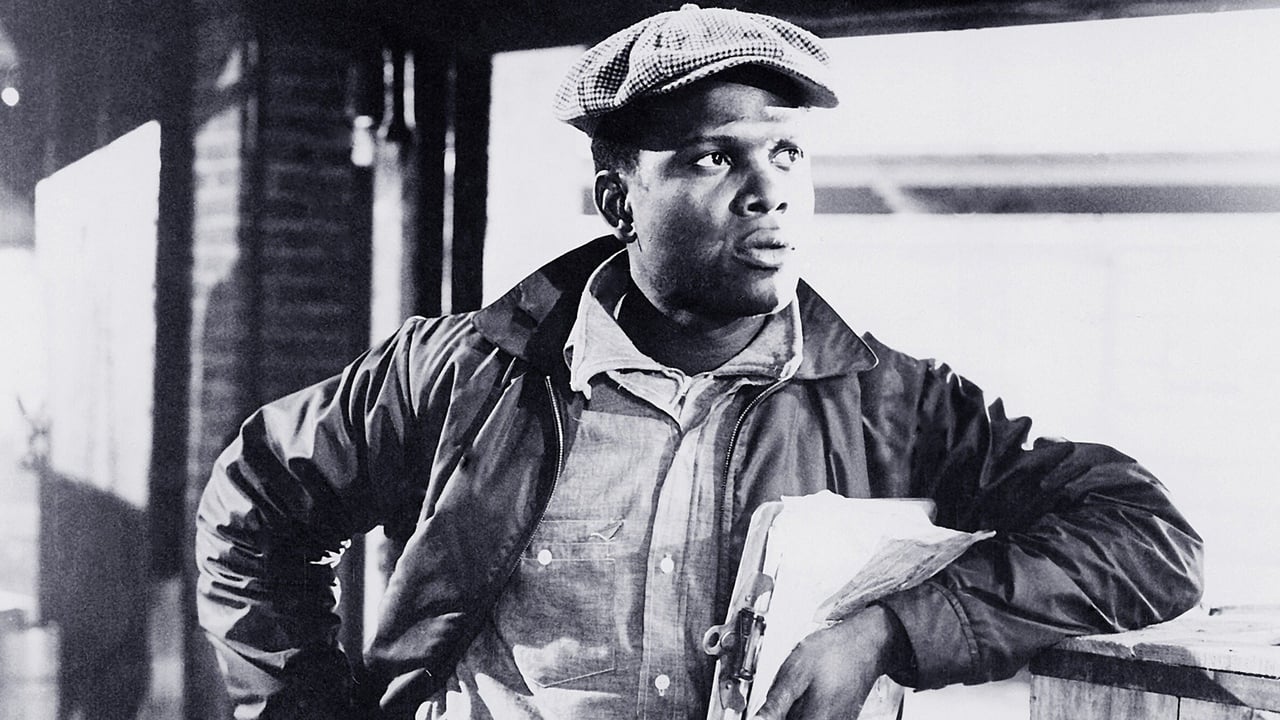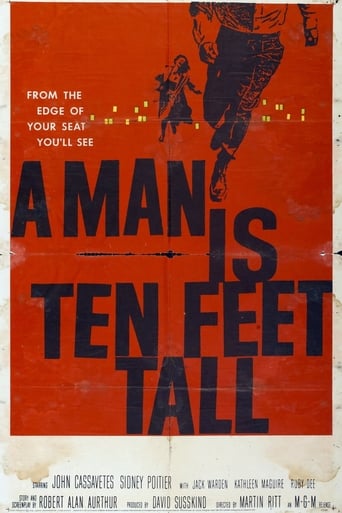

not horrible nor great
... View MoreFantastic!
... View MoreAn absolute waste of money
... View MoreA movie that not only functions as a solid scarefest but a razor-sharp satire.
... View MoreQuality entertainment that gets to the point and stays there. We get to visit with the docks back in in the 50's and the nonsense some serious some not that goes on there. Working at the docks is simple enough but the people make it not only interesting but in this case dangerous too. Enjoy Jack Warden who always delivers his characters true to life and is so good at representing the average man or point of view even if unpopular. John Cassavettes is not to be missed and who can ignore any film with Sidney Poitier in it? Lumped all together, we get a nice little glimpse and taste of human natures, life in the trenches and we get to see up close for ourselves what makes a man or a mouse as well as an ani-male and be better for it. Nice portrayal of the age old omerta type law of the underworld where if one sings like a canary, they are branded a rat. But the question begs this: What if one should tell what happened because it is the right thing to do? What then? This is the true test of manhood or the lack thereof and we are introduced to this dynamic in this movie which is reason enough to watch it. This is an excellent movie for eating a sandwich, chips and a tasty drink. This may not be edge of your seat entertainment but edge of you life also known as real life....
... View More"Edge of the City" casts Sidney Poitier as a warehouse worker who befriends John Cassavetes' troubled loner. His ready laugh and casual manner belie a character of depth and fortitude. As Tommy Tyler, Poitier exudes kindness and grace, even as Jack Warden's Charlie tries to bully and intimidate him. Cassavetes was skeptical of Lee Strasberg's Method by 1957, and he plays it fast and loose as Axel, an Army deserter who cannot find his place in the world. "Edge" spends a considerable amount of time showing these two characters at work in a warehouse, and the incidents of harassment and horseplay ring equally true to anyone who has done time in the world of unskilled blue-collar labor. This is the first feature film directed by Martin Ritt, and the themes of male bonding (Hud) and workplace injustice (Norma Rae) are ones he would revisit during his illustrious career. Exemplary cinematography by Joseph C. Brun, and observant writing by Robert Alan Aurthur add to the verisimilitude of this examination of the everyday existence of men who toil anonymously in the background of urban life."You go with the lower forms, and you are down in the slime."
... View MoreI first saw this film on cable in the 80's and it rocked me to the core. It showed up again on TV about six months ago.Filmed on location, the black and white cinematography graphically portrays 1950's New York as the gritty "urban jungle" at a time when there was far more industry and port activity in the city, particularly in Manhattan.John Cassavetes always brought a special intensity to his acting, and is magnificent in the role of the army dodger. His brief 1959 TV series "Johnny Staccato" is also a joy to watch.Sidney Poitier and (later in the film) Ruby Dee bring freshness and vitality to their roles. But it is Jack Warden's superb acting as the vicious, brutal shift boss that grabbed my attention. To get an idea of Warden's versatility, watch this film, then check out a 1962 episode of the TV series "Naked City" entitled "Specter of the Rose Street Gang (available on video)." If you are a fan of film noir, this is a must see. Enjoy!
... View MoreThis is an excellent movie that tackles the issue of racism in a delicate and balanced way. Great performances all round but absolutely outstanding acting by Sidney Poitier.He makes this movie breathe and alive. His portrayal of a guy who struggles against discrimination and violence is simply mind blowing. His acting is forceful and delicate and subtle at the same time. Truly worthy of an Oscar, Poitier had to wait (because of his skin colour) for many more years before the sheer brilliance of his acting was recognised by the Academy.Cassavetes turns in a great performance too, withdrawn, troubled and realistic as it has become his hallmark. He and Poitier contrast inimitably the forces of cowardice, courage and human transformation through friendship.The movie is enjoyable and at the same time deeply haunting in its portrayal of racism in the US. The irony is that it somehow mirrors the realities under which Poitier had to work.
... View More